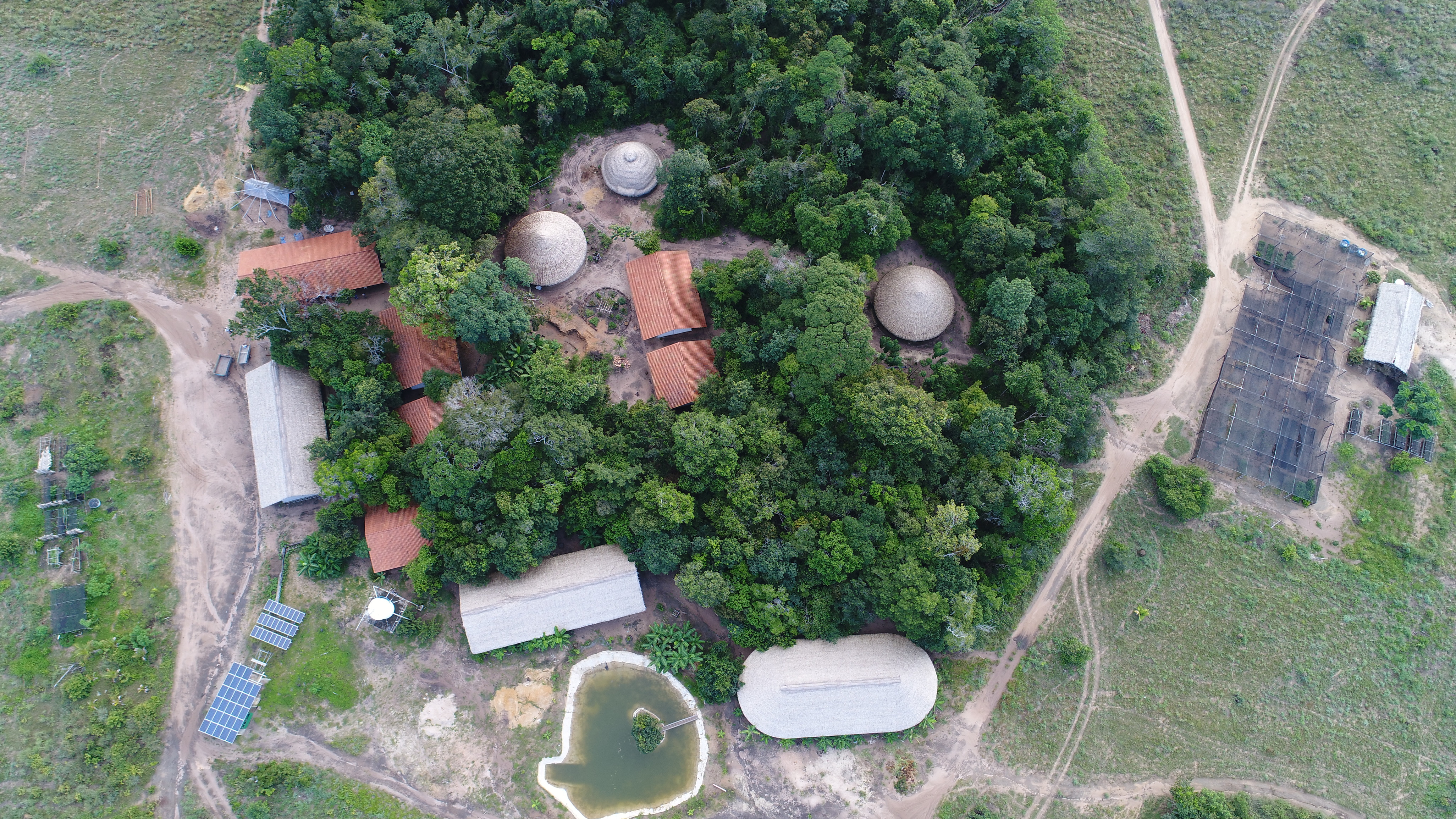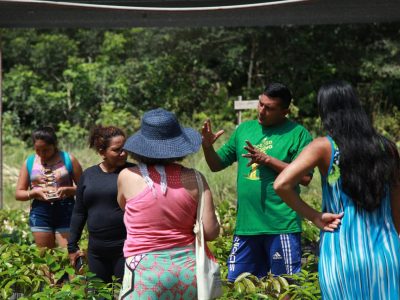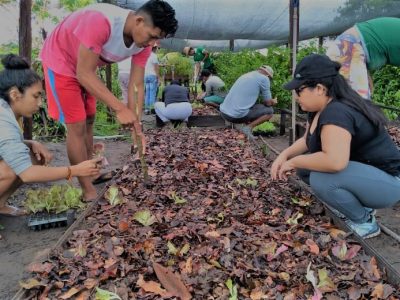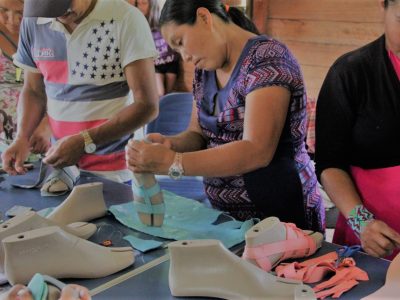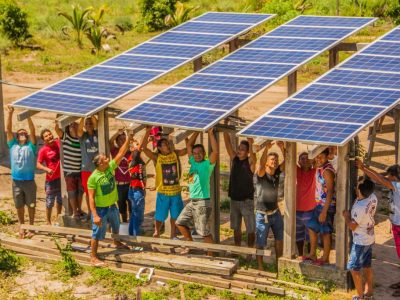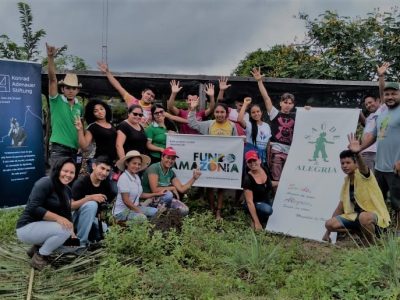Forest Economy
Socioproductive Units
The infrastructure that ensures major advances in the Forest Economy (Active Forest) revolve around the Socioproductive Units, a long-term strategy that PSA established in 2013 to boost the various economic activities of the riverside communities of Western Pará.
The Socioproductive Units are hubs where social technologies are created and tested to then be implemented by the communities. Such experiments are diversified and interdisciplinary, but share a focus on environmental conservation, social inclusion and increased family income.
This strategy is not limited to the assisted populations. All that is produced within the Socioproductive Units may be expanded to any other area of the Amazon Forest, in either isolated communities or non-isolated communities.
Active Forest Experimental Center (CEFA)
The first Socioproductive Unit built by PSA was the Active Forest Experimental Center (CEFA), inaugurated in 2016 in the Carão Community at the Tapajós-Arapiuns Extractive Reserve (Resex) – the most populated Resex in Brazil, with approximately 22,000 residents from approximately 70 communities, occupying an area of 650,000 acres. Created from the combined efforts of PSA, Chico Mendes Institute for Biodiversity Conservation (ICMBio) and the Organization of Associations of the Tapajós/Arapiuns Resex – Tapajoara, as well as local residents and associations, CEFA is the cradle of the Active Forest Program, coordinated by PSA.
CEFA is a modular space that integrates permaculture and agroecology demonstrative units, in addition to offering the surrounding community an ongoing and diverse program of courses and trainings, which functions as technology training center for institutional and community events.
CEFA is also a demonstrative example of bioconstruction, with energy efficiency, adequate waste treatment, use of daylight and natural ventilation, and reuse of rainwater. With this, the facilities have a low environmental impact and value the knowledge of native people.
Jaguari Ecoproductive Hub and Forest Economy EcoCenter
Drawing on the experiences at CEFA, PSA is working on two more Socioproductive Units: the Jaguari Ecoproductive Hub, located in the Tapajós National Forest (Flona) which will promote non-timber productive chains in the region; and the Forest Economy EcoCenter, a showroom in the city of Santarém to market what is produced in the two hubs. Through this, Active Forest works to increase revenue from biodiversity products.
The construction and management of the EcoCenter will involve partnerships with the Chico Mendes Institute for Biodiversity Conservation (ICMBio), the Brazilian Institute of Environment and Renewable Natural Resources (Ibama), City Governments, the Organization of Associations of the Tapajós/Arapiuns Resex (Tapajoara), the Association of Rural Extractive Producers on the Left Bank of the Tapajós (Apruspebras), the Flona Tapajós Federation, the Flona Tapajós Mixed Co-op (Coomflona), the Santarém Rural Workers Labor Union (STTR/STM) and ACO, among other entities.
See also
Agroecology and Repositioning of the Forest
Sociobiodiversity Chains
Community and Artisanal Tourism
Renewable Energies
Socioenvironmental Business Incubator
Contact
- Av. Mendonça Furtado, 3979
- +55 93 3067-8000
- +55 93 99143-1091
- psa@saudeealegria.org.br
HOW TO HELP
Projeto Saúde & Alegria © 2020
Agência Fervo

